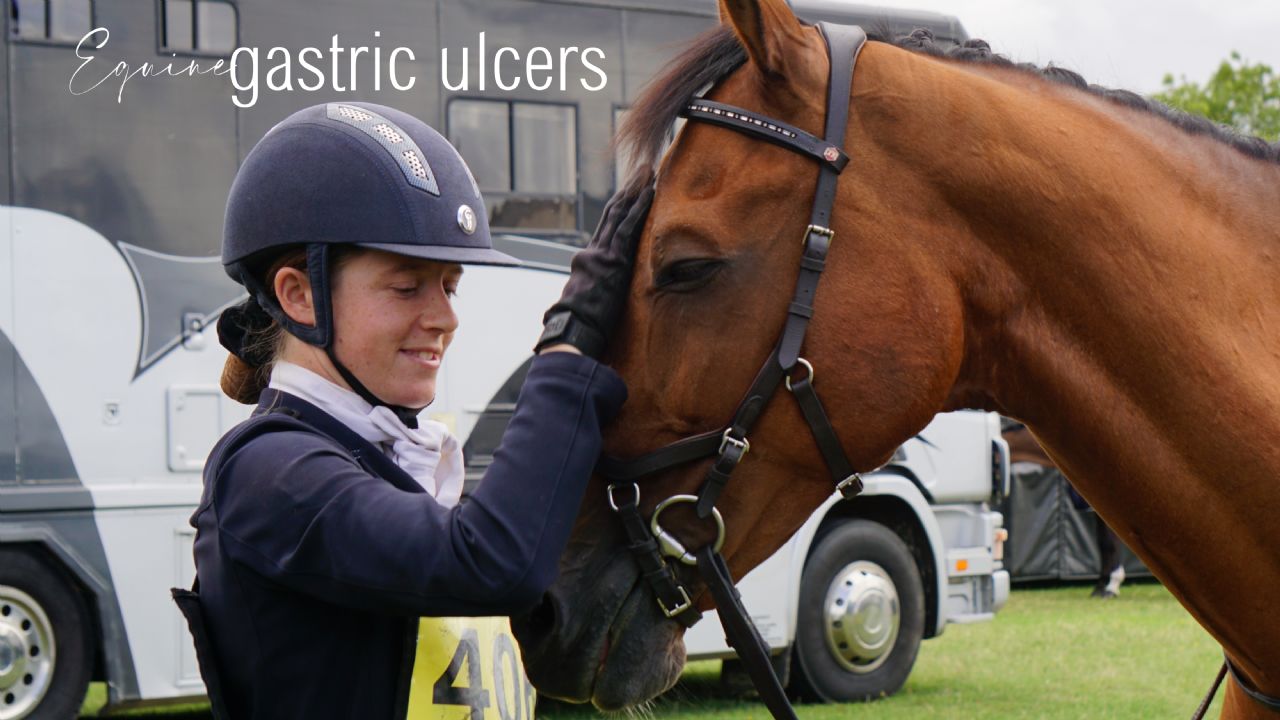Why do we recommend feeding horses from ground level?
How does the horse's jaw work? What happens if horses eat above ground level? Read the article to learn more...

The more we look, the more we find gastric ulcers in horses. They are being increasingly diagnosed across all horse populations (including leisure horses) likely due to greater awareness of the signs and symptoms. There have also been developments in technology allowing vets to make earlier and more conclusive diagnoses. Overall, more horses now seem to have ulcers than don’t.
Ulcers are painful for the horse, can impact on their handlers or riders as they react to that pain, and may even reflect our failing to provide a calm and healthy environment. That's not to say all owners of horses with ulcers are to blame - but it really ought to trigger all of us to think more about how we can better care for our horse's needs. Ulcers should not be inevitable or acceptable.
Horses are sociable grazers, gradually moving around their range in groups, grazing and walking at the same time. If we isolate them from their own kind, restrict their range or limit their ability to eat for 16 hours a day, various levels of stress are created. Add inappropriate food and we can only wonder that ulcers are not even more prevalent. The right food can make a huge difference, but environmental factors will also have a significant impact on a successful outcome.
Acid is pretty much constantly generated in the horse's stomach. It will build up to potentially damaging levels when the horse is not eating enough food to “mop it up”. Some food will actually increase the amount of acid in the stomach. Starch and sugar can be turned to acid by the action of certain microbes. Stress, environmental or due to pain, for instance, leads to extra acid being produced and will also damage the mucus secretions that protect the lower part of the stomach. Some or all of these will make a horse increasingly prone to developing ulcers. Work, especially cantering, galloping and jumping, will cause the abdominal contents to put pressure on the stomach, forcing acid on to the sensitive upper part of the organ. Ulcers ensue.
There are plenty of things we can do to help combat ulcers:
The best food for horses with ulcers is lucerne (aka alfalfa). This amazing forage, known in different languages as 'Prince of Feeds' and 'Best of the Best', has been grown for horses for around 5,000 years so has stood the test of time. It works really well for horses with ulcers for many reasons:
Ulcers are not an inevitable result of domesticating horses but rather an unintended consequence which can be remedied with a little more attention to the horse’s actual needs as a horse.
To view our most recommended feeds for ulcers and further management tips please click here.
For a free Feed Plan tailored to your horse's individual needs please complete our online form or call the Feed Line on 01728 604 008. Our friendly team will be happy to help.
How does the horse's jaw work? What happens if horses eat above ground level? Read the article to learn more...
We're thrilled to be adding an exiting new event to the calendar for 2026!
Horses’ teeth change throughout their lives - they are continually growing and continually wearing, as they chew and grind their grazing and forage.